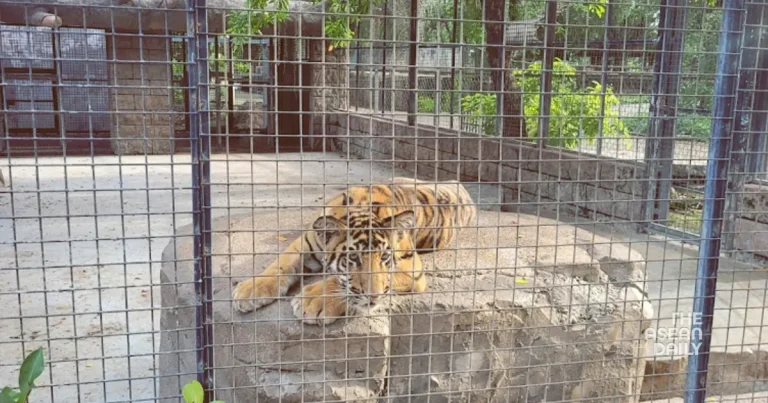2-10-2024 (HANOI) Two zoos in southern Vietnam have reported the loss of dozens of big cats to the H5N1 bird flu virus. This alarming development has sent shockwaves through the conservation community and raised concerns about the virus’s ability to cross species barriers.
According to state media reports, a total of 47 tigers, three lions, and one panther succumbed to the highly pathogenic avian influenza virus in August and September. The fatalities occurred at two facilities: the privately-owned My Quynh safari park in Long An province and the Vuon Xoai zoo in Dong Nai, both situated near Ho Chi Minh City.
The Vietnam News Agency (VNA) cited test results from the National Centre for Animal Health Diagnosis, which confirmed that the animals perished due to infection with the H5N1 type A virus. This particular strain of avian influenza has been a cause for global concern due to its potential to infect a wide range of species, including humans.
When approached for comment, representatives from both affected zoos declined to provide further information, adding an air of mystery to the already troubling situation.
In a somewhat reassuring development, the VNA report noted that no zoo staff members who had been in close contact with the infected animals had exhibited any respiratory symptoms. However, health authorities are likely to maintain vigilance given the virus’s potential for human transmission.
The tragic loss of these magnificent creatures has cast a spotlight on the broader issue of captive wildlife in Vietnam. Education for Nature Vietnam (ENV), a prominent NGO dedicated to wildlife conservation, reports that as of the end of 2023, there were 385 tigers living in captivity across the country. Of these, approximately 310 are housed in 16 privately owned farms and zoos, while the remainder reside in state-operated facilities.
This incident aligns with a worrying trend observed by the World Health Organisation (WHO). Since 2022, there has been an uptick in reports of deadly outbreaks among mammals caused by influenza viruses, including H5N1. The WHO also cautions that H5N1 infections in humans can range from mild to severe, with some cases proving fatal.
The gravity of the situation is underscored by Vietnam’s notification to the WHO in March of this year, reporting a human fatality attributed to the virus. This cross-species transmission capability of H5N1 is a source of significant concern for public health officials worldwide.
This is not the first time big cats have fallen victim to avian influenza. In 2004, Thailand witnessed a similar tragedy when dozens of tigers at the world’s largest breeding farm either died from bird flu or had to be culled to prevent further spread.




